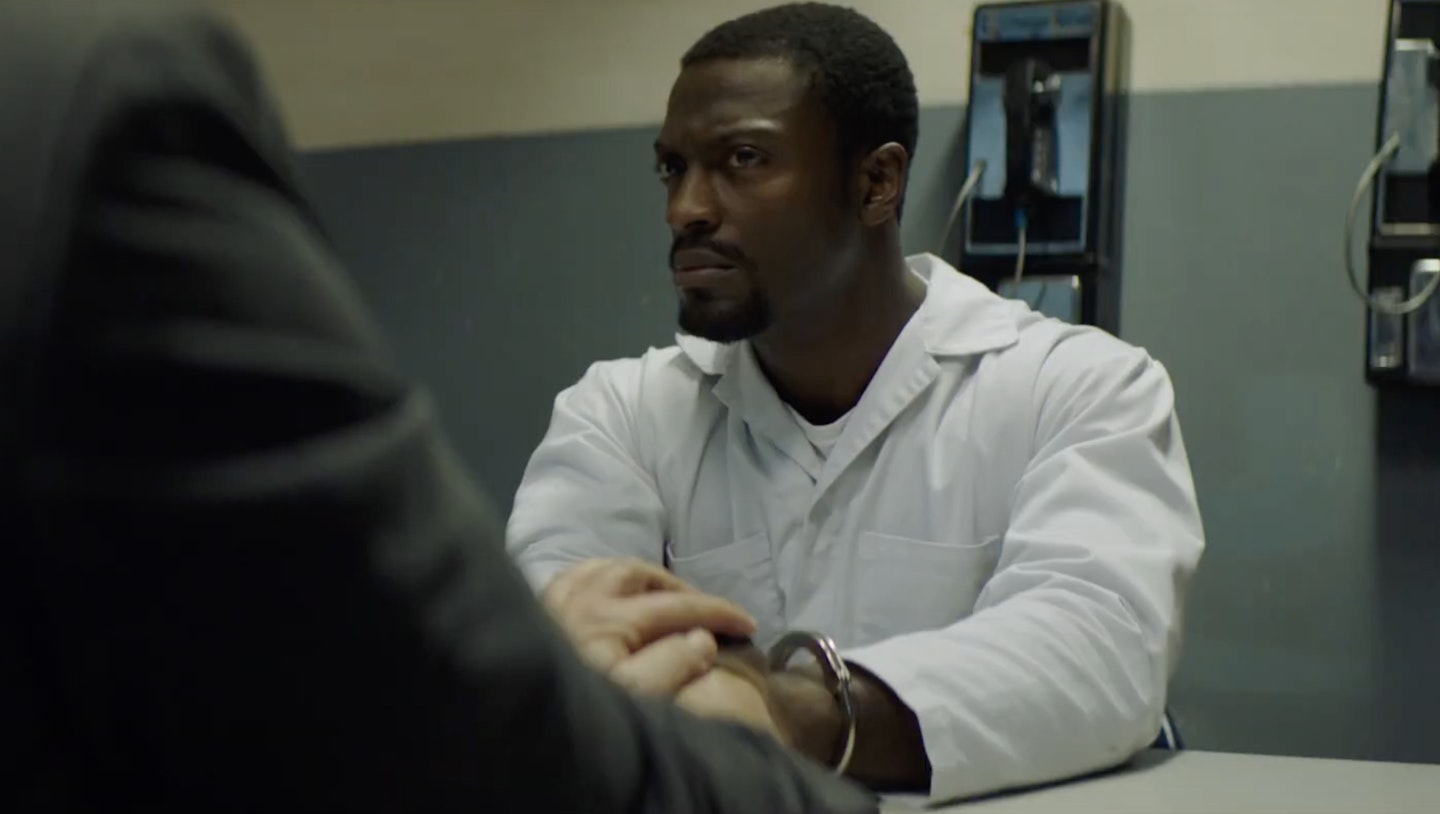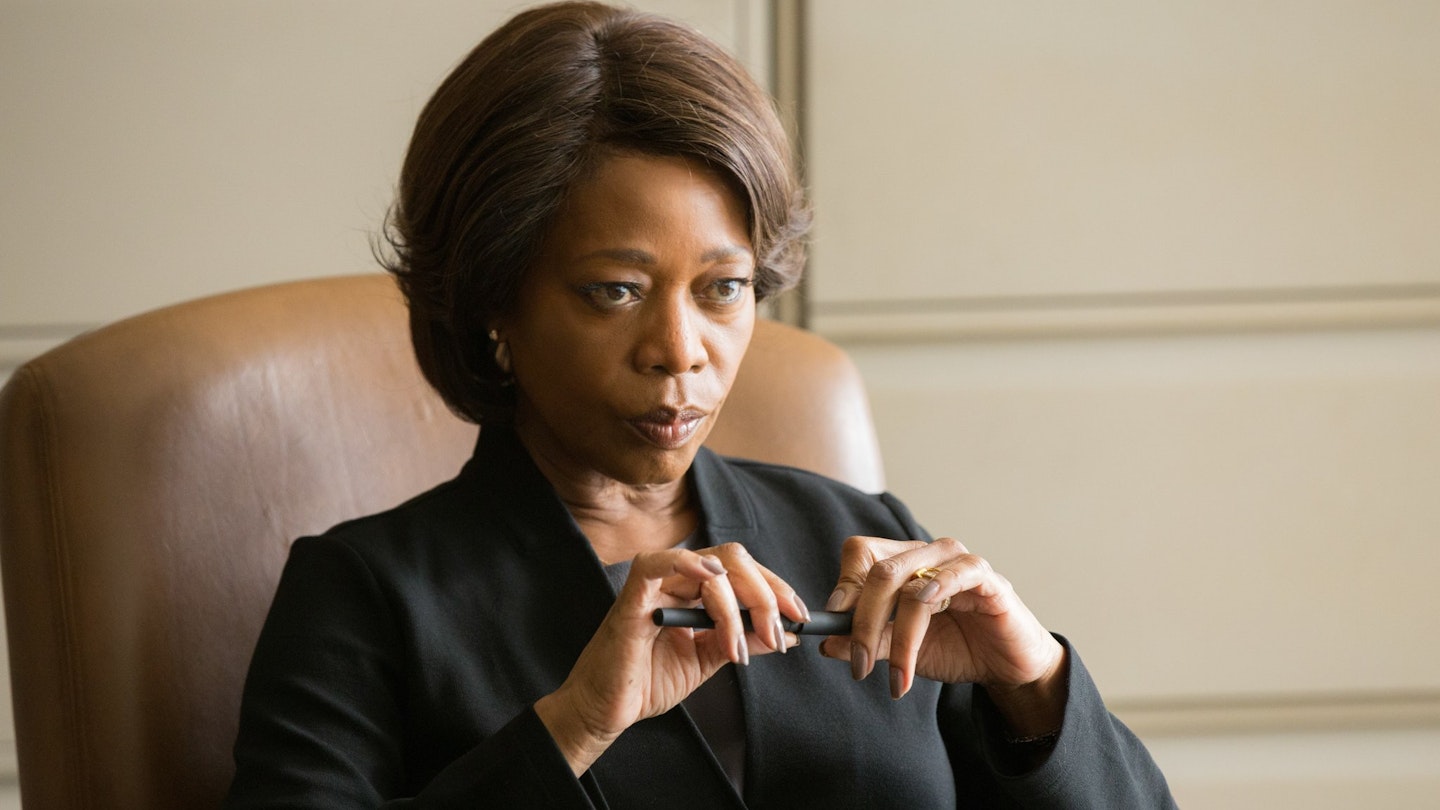Clemency’s opening scene shows prison warden Bernadine Williams (Alfre Woodard) overseeing the 11th execution of her career. The inmate’s face contorts in pain and he recites the Lord’s Prayer as his mother raises her cross to the glass; the injection fails, and the execution is horribly botched. The prisoner dies on schedule, but he dies anguished in his body and his soul.
The rest of writer-director Chinonye Chukwu’s powerful, needle-sharp drama follows the run-up to execution number 12, as the reality of Bernadine’s job destabilises her peace of mind, her sleep and her marriage. Woodard’s subtle but affecting lead performance draws us into her private hell as she follows the regulations for killing a man by day, and drowns her demons in a local bar by night. Bernadine’s husband Jonathan (Wendell Pierce) warns her that she lives in fragments, and the film itself mirrors her emotional disconnect. Information is drip-fed unobtrusively into the narrative: the film’s quiet economy is in inverse proportion to its moral heft.
The prisoner sentenced to die is Anthony Woods (Aldis Hodge), a young Black man convicted of murdering a police officer. He proclaims his innocence, as do his determined, righteous lawyer (Richard Schiff) and the anonymous protestors chanting his name in solidarity outside the prison walls. Anthony, his lawyer and the crowd outside are pinning their hopes on a last-minute reprieve by the governor. In an agonising scene, his ex-girlfriend (Danielle Brooks) says he will be remembered as a martyr, but Anthony just wants to live: more specifically, he doesn’t want to be executed for a crime he didn’t commit. He beats his head against his cell wall until it bleeds, begs the prison officers who restrain him to finish the job.

Bernadine can’t help Anthony without that reprieve. Her hands are tied to a task that bears an unbearable responsibility. She is, in a real sense, married to her work, because her job demands more than her time and professionalism — it takes a little of her soul every day. “I am alone,” she tells her husband, “and nobody can fix it.”
In Clemency, the cruelty of the death penalty extends beyond the residents of death row, to the officials charged with enforcing it. Bernadine’s husband wants them to plan for retirement — it’s an option Anthony’s lawyer and the prison chaplain are both embracing themselves, but for Bernadine, it’s too late. Her bleak profession lacks the emotional reward that has sustained her peers, and now she’s adrift.
There’s a political dimension to both Anthony and Bernadine’s positions too, underlined when teacher Jonathan reads Ralph Ellison’s novel about racial injustice, Invisible Man, to his class. Bernadine encourages a white male colleague to apply for a cushier job than hers, at a prison without executions, while she stays on to enact the state’s violent decrees, mostly against young men of colour. The most devastating revelation in this remarkable film is that there is little prospect of reprieve for Bernadine herself.
